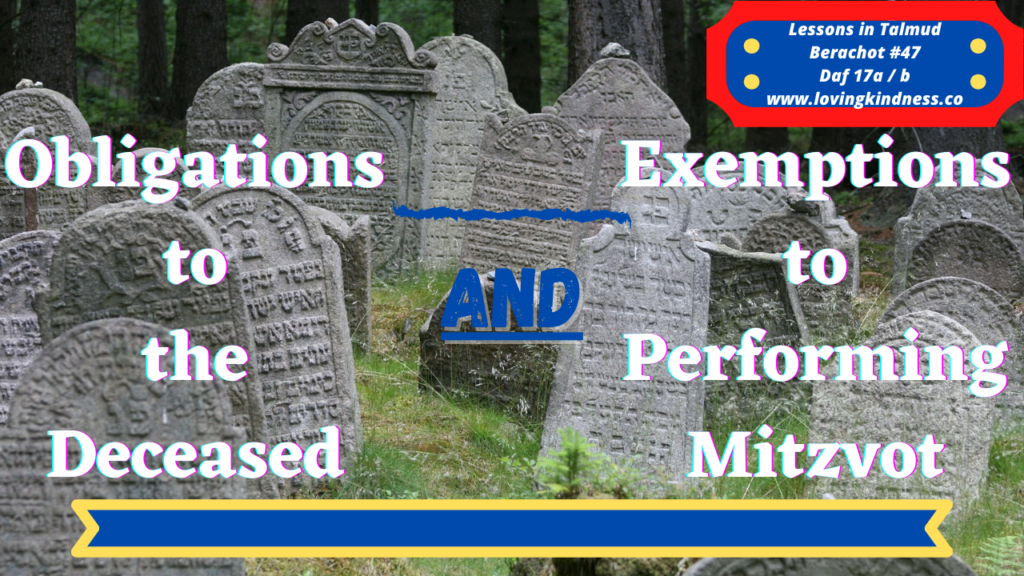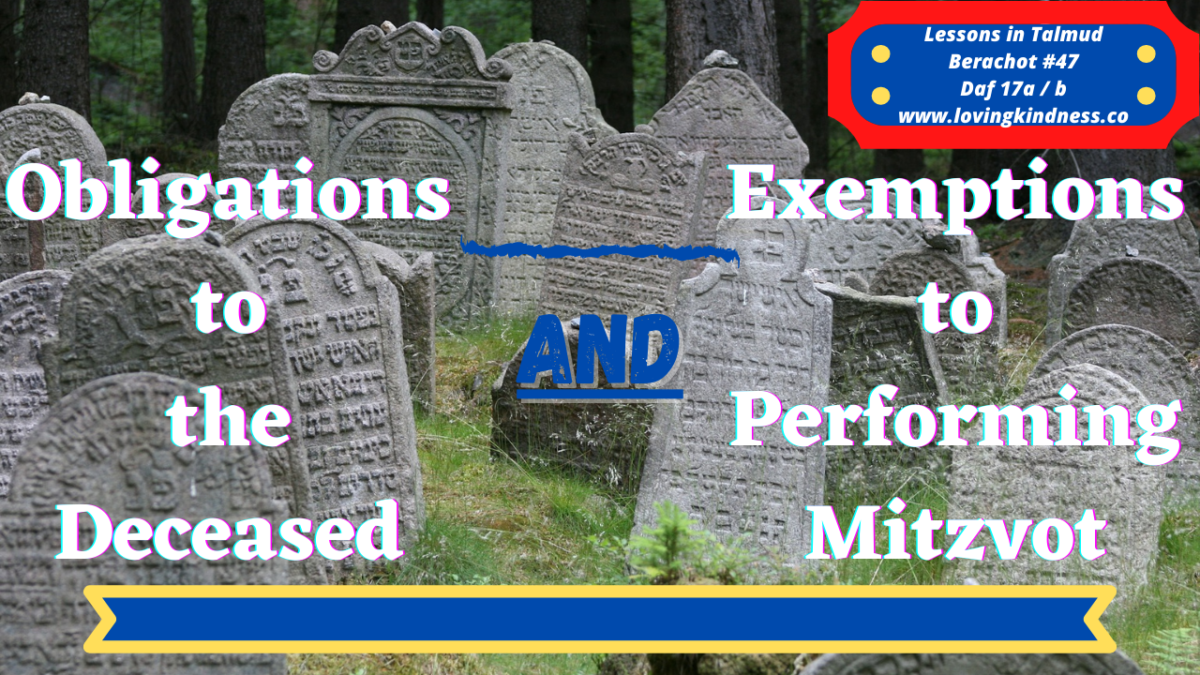
We conclude 17a with a verse from the book of Tehillim (Psalms), “Our leaders are laden, there is no breach and no going forth and no outcry in our open places.” (Psalms 144:14) where the Gemara goes into detail describing the different parts of the verse and what each part means.
Thereafter, another verse of from the Prophets is quoted and discussed (Isaiah 46:12), “Hear Me, stubborn-hearted who are far from charity”. The Gemara here speaks of the idea that the righteous seem to be sustained from their own efforts, whereas the rest of the world are sustained through the merits of those whoa re righteous.
The Gemara returns to the Mishnah which speaks about Rabban Shimon ben Gamliel prohibiting the reciting of the Shema for a groom on his first night after the wedding. It seems that his reasoning would indicate that it is a haughty thing to do – as after all, can the groom have concentration, and really one should have concentration. He therefore presumes himself to be able to concentrate. Yet the Rabbis seems to indicate that it is not a haughty thing for him to do.
The Gemara debates the issue of who said what and whether it was presumed that the groom was being haughty by reciting the Shema on that night after his wedding. The Gemara brings in another examples of a simiar argument that related to the prohibition of working on the 9th dav of Av – the day on which we fast due to the destruction of the Temple. Should one abstain from work? Rabban Shimon ben Gamliel has an argument against the Rabbis in this matter too – as it relates to the status of a person who would consider himself to be a Talmid Chacham (a wise student of the Torah) and would thereby not go out to work.
We conclude Chapter 2 – Mazal Tov! And we move on to Chapter 3 of Tractate Berachot – – Mi Shemaito (One whose deceased lies before him.)
The new Mishnah discusses the Mitzvah of a person whose deceased lies before and his obligation in reciting the Shema, in davening the Amidah and wearing Tefillin and really all the positive Mitzvot of the Torah.
It continues discussing the matter of those who are present at the funeral and their obligation to recite the Shema and prayer the Amidah prayer.
One the deceased is buried what then is the law?
The Gemara goes into further detail regarding the exemptions related to those who must bury their dead and whether the same exemptions apply to one who is actually related to the deceased as opposed so someone else who watches the body but who may not be related.
What about a person who is simply walking though a cemetery? Is such a person also exempt from certain Mitzvot – as perhaps in a certain sense he is now also connected with the deceased and is therefore exempt from certain things? Or perhaps we do not apply the same rules, and there are only certain stringencies at particular instances of being in the cemetery.
What about a person who is guarding a deceased person on a ship and he is together with another? Should they both stand guard over the body? Should one guard and the other leave to attend to prayer matters and then they swap again? Or perhaps both can go and pray while leaving the deceased body alone during the time? The Gemara discusses these scenarios.


